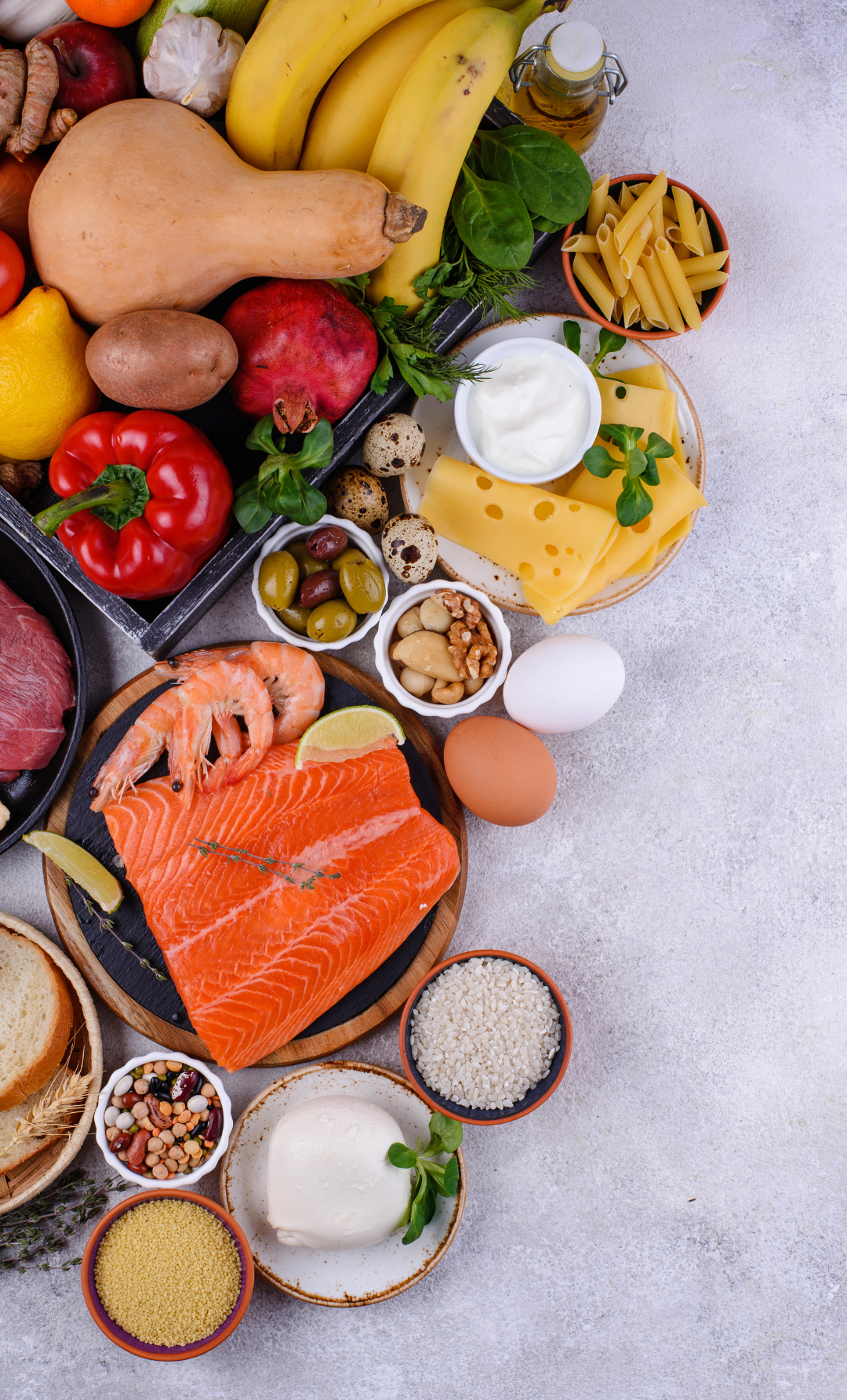An easily digestible guide to insulin resistance.
Written by
Kimberly Lush

What is insulin?
Insulin is often blamed for a lot of things. But insulin isn’t a bad thing – it’s just a hormone! If we want to give it a job title, it’s a storage hormone.
Basically, you eat food containing carbohydrates. Your body will break this food down into its smallest components, including glucose. This glucose will enter your bloodstream. (This is good! We want this! Your cells LOVE using glucose as energy!) From here, insulin will help relocate the glucose from your bloodstream into your cells. This is a pretty important step.
Insulin is important. It basically gives our cells life! So, if you hear anyone saying bad things about insulin as a hormone, leave that conversation immediately.
What is insulin resistance?
Now, with insulin resistance, your cells simply resist the action of insulin. So instead of the glucose getting into your cells, it just hangs out in your bloodstream.
Your body recognises the high blood glucose levels and will work harder to produce more insulin. Now we have a fair amount of glucose and insulin sitting in the blood, which can bring on an array of symptoms.
Your body might get stuck in this loop of needing more and more insulin to get the same amount of glucose into your cells to feed them. Often, this just gets worse over time.
01
Is insulin resistance bad?
The main complication is the eventual progression towards type 2 diabetes.
In addition to type 2 diabetes, insulin resistance if often associated with many other conditions, including:
- Obesity
- Cardiovascular disease
- Non-alcoholic fatty liver disease
- Polycystic ovarian syndrome
Insulin resistance can cause a lot of the symptoms associated with PCOS, and it can even affect your fertility. Think irregular cycles, ovulation changes, higher risk of miscarriage and a decreased response to fertility treatments such as IVF.
If you’re reading this and contemplating cutting out all sugar and carbohydrates out of fear of developing insulin resistance, stop that right now!
If you have healthy blood glucose levels and have adequate insulin sensitivity, you won’t have any issues with carbohydrates and sugar! Anyone who cites “research” demonstrating the dangers of sugar are misrepresenting the research. They are possibly misusing rodent research, or finding research from individuals with insulin resistance or poor glycaemic control. I promise that if you don’t have diagnosed insulin resistance, carbohydrates are not of danger to you.
02
Can diet and lifestyle changes affect insulin resistance?
My guess is that you’ve been told to cut out carbohydrates to manage insulin resistance.
Well don’t worry, you’ll get better quality advice here.
Eating a well-balanced diet and moving your body is the key here. The goal is to slow down how much glucose is getting into your bloodstream and even out your blood glucose levels over the course of the day.
Following a Mediterranean style diet is an effective (and easy) way to help manage your blood glucose levels.
This means including:
- A wide array of fruits and non-starchy vegetables
- Wholegrains
- Legumes (lentils, beans, chickpeas)
- Nuts and seeds (yes, this includes peanut butter!)
- Lots of oily fish
- Extra virgin olive oil
- Moderate amounts of lean red meat, pork and poultry (limit processed meats like ham and salami)
- Moderate amounts of dairy products such as milk, yoghurt and cheese
- Reduced alcohol intake
Congratulations, you’re now following a Mediterranean diet, what else can you do?
Check out the spread of carbohydrates across the day! We want some carbohydrates at each meal, in an appropriate serving size. This could mean oats at breakfast, a sandwich at lunch made with whole grain bread, and brown rice at dinner.
The serving size of these carbs matters with insulin resistance! If you have a massive serving of rice at dinner, this is going to shoot your blood glucose levels up, and your body will have to work really hard to bring it down!
Which brings me to our next trick. Low glycaemic index (GI) carbohydrates!! Lower GI carbohydrates slowly release glucose into your bloodstream which can prevent rapid spikes in your blood glucose levels. This helps your insulin keep up with the glucose load entering your body.
Some simple swaps include:
- Swapping white jasmine rice for brown basmati rice or Doongara rice
- Swapping white bread for a grainy wholemeal, rye or sourdough bread
- Swapping white pasta for wholemeal pasta
- Swapping corn/rice cakes for wholegrain crackers
- Swapping refined cereals like Coco Pops for oats, bran or untoasted muesli (Weet Bix is also low GI when eaten with milk!)
03
What about exercise?
Let’s say that you have a fairly sedentary job, but you go to the gym 3 times a week for 45 minutes. You do 2000 steps the rest of the day. What does this mean for you and your insulin resistance?
There are so many benefits to resistance training and going to the gym! It can absolutely help improve your insulin sensitivity, but being active throughout the entire day is more important for insulin resistance.
In addition to the gym, you need to add in some aerobic exercise. This doesn't mean doing high intensity interval training or CrossFit! It means aiming for 115 minutes of aerobic exercise per week. This can be anything from walking, to swimming, to cycling, to dancing! It doesn’t have to be strenuous exercise; you just need to be moving!
The intensity or modality of exercise matters far less than you might think it does.
Top 5 tips to beat insulin resistance
Let’s summarise here!
- Eat a balanced, Mediterranean style diet
- Spread out your carbohydrates evenly throughout the day. Don’t avoid carbs at breakfast and lunch only to load up on them at dinner! That’s going to have the opposite effect.
- Choose low GI carbohydrates – basmati rice, wholemeal pasta, grainy breads, fresh fruit, non-starchy vegetables.
- Try to get 30 minutes of exercise a day! Get some extra steps in.
- Get enough sleep at night! Not getting enough sleep at night can increase your insulin production the next day, so aim for 8 hours when you can.

Thanks for reading! Why not subscribe to our mailing list for more great content.

